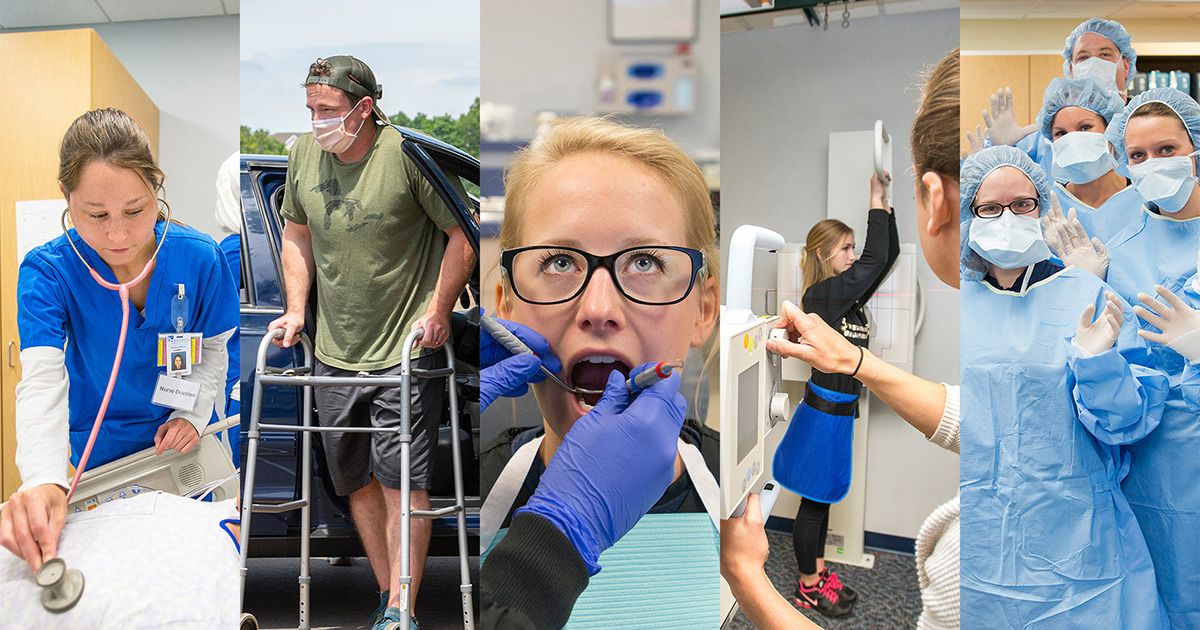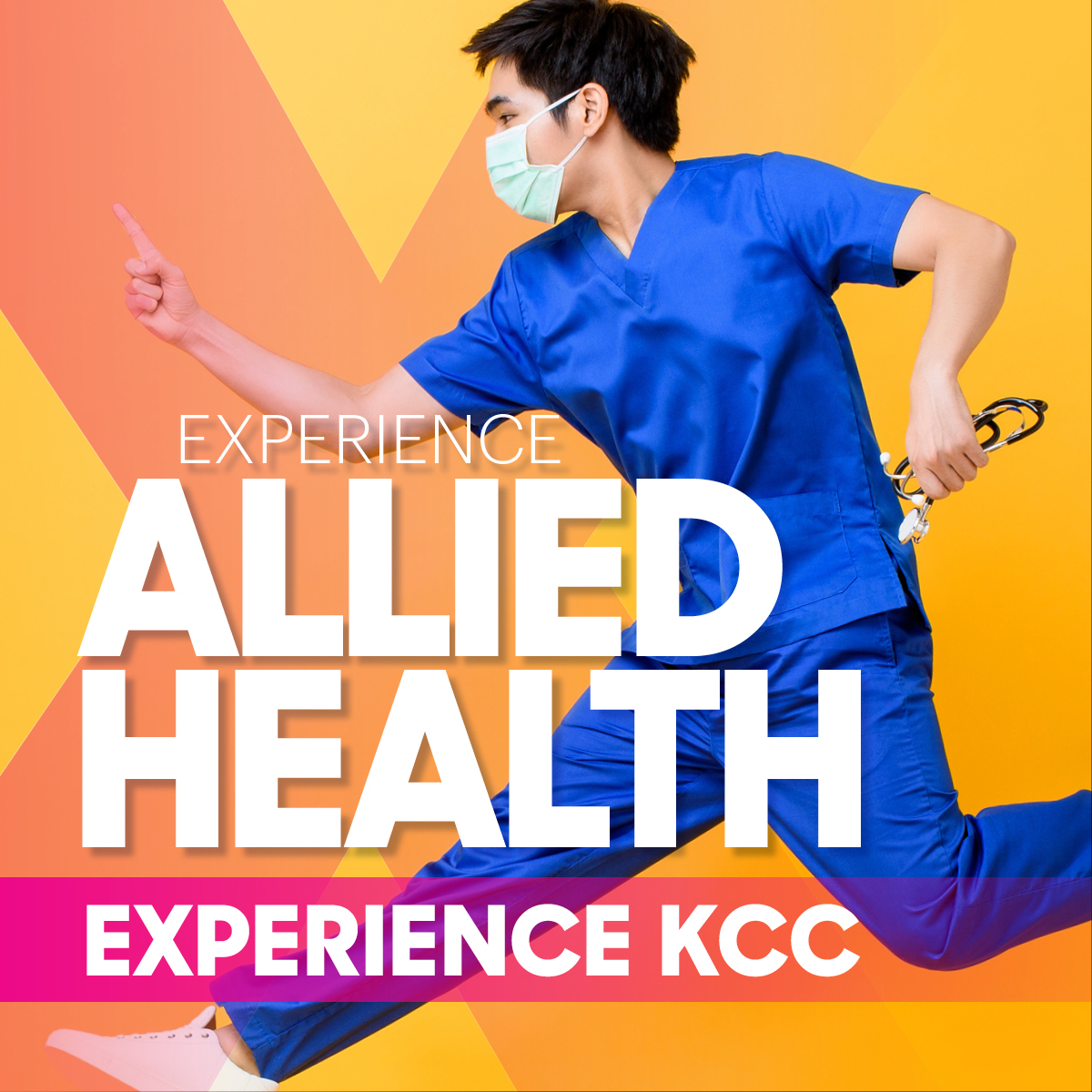
ALLIED HEALTH
Kellogg Community College is proud to offer several Allied Health programs, each of which has a specific admissions process. Because of space limitations, enrollment limitations imposed by accrediting agencies, or program prerequisites, admission to these programs may be selective.
Click through the links below to visit pages for each program.
- Computed Tomography
- Dental Hygiene (Click here to view our Dental Hygiene Program Information Session on YouTube)
- Emergency Medical Services (EMS)
- Magnetic Resonance Imaging (MRI)
- Medical Assistant (Click here to view our Medical Assistant Program Information Session on YouTube)
- Neurodiagnostic Technologist (EEG) (Click here to view our Neurodiagnostic Technologist Program Information Session on YouTube)
- Physical Therapist Assistant (PTA) (Click here to view our PTA Program Information Session on YouTube)
- Radiography (Click here to view our Radiography Program Information Session on YouTube)
Career analysts project a strong demand for health care professionals well into the 21st century. KCC is helping to meet those needs by preparing students for rewarding careers. Please visit each program linked above to learn more.
Clinical Education Access Requirements Statement
Students formally accepted to participate in Allied Health, Emergency Medical Services or Nursing programs are required to comply with clinical access requirements prior to and during clinical education placement in a hospital, outpatient clinic or other clinical education setting. These students are required to:
- Undergo a physical examination, immunizations, urine drug screen and criminal background check.
- Secure and maintain CPR certification in Basic Life Support (BLS) from the American Heart Association or Basic Life Support (BLS) for Health Care Providers from the American Red Cross throughout their clinical education participation.
- Adhere to the uniform and personal appearance standards according to program policies determined by clinical education providers.
- Maintain professional liability insurance according to College policies, as required by clinical education providers. The College ensures students are covered with professional liability insurance with the cost collected through lab fees.
Students participating in clinical education are not employees of a clinical education provider or of the College, and therefore are not covered by Workman’s Compensation insurance. It is highly recommended that students maintain personal health insurance while enrolled in an educational program.
Clinical education providers reserve the right to impose additional requirements at any time to ensure the safety of patients, employees and students. Clinical access requirements are determined by the College, according to the policies of the clinical education providers. The program director or coordinator will provide students with detailed direction and timeline for completing all clinical access requirements.
Compliance and cost of clinical access requirements are the responsibility of the student.
Latex Environment Statement
Students participating in Allied Health, Emergency Medical Services or Nursing courses are likely to have contact with latex throughout their educational experience. Due to the broad range of equipment, manikins, materials and supplies used in the College’s practice and simulation laboratories, and within a vast number of hospitals and other clinical education facilities, students with latex allergies considering any of these programs should direct questions to their physician prior to applying to the program to ensure safe participation in a latex environment.
Positive Drug Screen Statement
Students with a positive drug screen will be deemed ineligible to participate in clinical education. Furthermore, as clinical education is a critical requirement of KCC’s Allied Health, Emergency Medical Services and Nursing programs, the student will be dismissed from their current program of study. For students who would like to be considered for re-admission, they should refer to their program’s policy of re-admission and direct questions to the program director.



